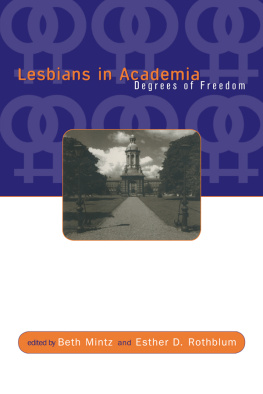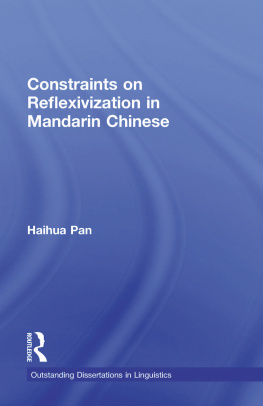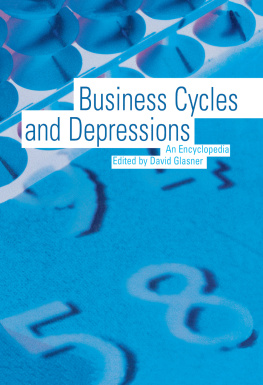Beth Mintz - Lesbians in Academia: Degrees of Freedom
Here you can read online Beth Mintz - Lesbians in Academia: Degrees of Freedom full text of the book (entire story) in english for free. Download pdf and epub, get meaning, cover and reviews about this ebook. year: 2013, publisher: Taylor and Francis, genre: Home and family. Description of the work, (preface) as well as reviews are available. Best literature library LitArk.com created for fans of good reading and offers a wide selection of genres:
Romance novel
Science fiction
Adventure
Detective
Science
History
Home and family
Prose
Art
Politics
Computer
Non-fiction
Religion
Business
Children
Humor
Choose a favorite category and find really read worthwhile books. Enjoy immersion in the world of imagination, feel the emotions of the characters or learn something new for yourself, make an fascinating discovery.
- Book:Lesbians in Academia: Degrees of Freedom
- Author:
- Publisher:Taylor and Francis
- Genre:
- Year:2013
- Rating:4 / 5
- Favourites:Add to favourites
- Your mark:
- 80
- 1
- 2
- 3
- 4
- 5
Lesbians in Academia: Degrees of Freedom: summary, description and annotation
We offer to read an annotation, description, summary or preface (depends on what the author of the book "Lesbians in Academia: Degrees of Freedom" wrote himself). If you haven't found the necessary information about the book — write in the comments, we will try to find it.
Lesbians in Academia: Degrees of Freedom — read online for free the complete book (whole text) full work
Below is the text of the book, divided by pages. System saving the place of the last page read, allows you to conveniently read the book "Lesbians in Academia: Degrees of Freedom" online for free, without having to search again every time where you left off. Put a bookmark, and you can go to the page where you finished reading at any time.
Font size:
Interval:
Bookmark:
Lesbians in Academia
Lesbians in Academia
Degrees of Freedom
edited by
Beth Mintz and Esther Rothblum

Published in 1997 by
Routledge
711 Third Avenue,
New York, NY 10017
Published in Great Britain in 1997 by
Routledge
2 Park Square, Milton Park,
Abingdon, Oxon, OX14 4RN
Transferred to Digital Printing 2011
Copyright 1997 by Routledge
Design: Jack Donner
All rights reserved. No part of this book may be reprinted or reproduced or utilized in any form or by any electronic, mechanical, or other means, now known or hereafter invented, including photocopying and recording, or in any information storage or retrieval system without permission in writing from the publishers.
Library of Congress Cataloging-in-Publication Data
Lesbians in academia : degrees of freedom / [edited by] Beth Mintz and
Esther Rothblum.
p. cm.
Includes bibliographical references and index.
ISBN 0415917018. ISBN 0415917026
1. Lesbian college teachersUnited StatesSocial conditions.
2. Lesbian college studentsUnited StatesSocial conditions.
I. Mintz, Beth. II. Rothblum, Esther D.
LB2332.3L47 1997
378.1 2086643dc21 | 97-16999 |
Publishers Note
The publisher has gone to great lengths to ensure the quality of this reprint but points out that some imperfections in the original may be apparent.
Contents
Beth Mintz and Esther Rothblum
Dawn D. Bennett-Alexander
Employment Law and Legal Studies, University of Georia
Christine Cress
Career Services Center, Western Washington University
Mildred Dickemann
Professor of Anthropology, Emeritus, Sonoma State University
Penelope Dugan
The Writing Program, Richard Stockton College of New Jersey
Michele J. Eliason
College of Nursing, University of Iowa
Kathryn M. Feltey
Department of Sociology, University of Akron
Maggie Fournier
College of Nursing, University of Southern Maine
Nanette K. Gartrell
Department of Psychiatry, University of California, San Francisco
Barbara W. Gerber
Counseling and Psychological Services, State University of New York at Oswego
Charlotte L. Goedsche
Foreign Language Department (German), University of North Carolina at Asheville
Nancy Goldstein
Department of Womens Studies, Harvard University
Batya Hyman
Department of Social Work, Arizona State University West
Sherrie A. Inness
Department of English, Miami University
Julie C. Inness
Department of Philosophy, Mount Holyoke College
Carey Kaplan,
Department of English, St Michaels College
Sandra M. Ketrow
Department of Communication Studies, University of Rhode Island
Kathryn H. Larson
Boalsburg, Pennsylvania
Jan McDonald
School of Education, Pace University
Carol J. Moeller
Department of Philosophy, University of Pittsburgh
Akilah Monifa
Law School, New College of California
Sue Morrow
Department of Educational Psychology, University of Utah
Sally ODriscoll
Department of English and Womens Studies, Fairfield University
Christy M. Ponticelli
Department of Sociology, University of South Florida
Patty Reagan
Department of Health Education and Womens Studies, University of Utah
Amy L. Reynolds
Counseling Psychology Program, Fordham University-Lincoln Center
Raechele L.Pope
Department of Organization and LeadershipTeachers College, Columbia University
Jennifer Rycenga
Comparative Religious Studies Program, San Jose State University
Bonnie R. Strickland
Department of Psychology, University of Massachusetts at Amherst
Lynn A. Walkiewicz
Center for Humanities and Education, Cazenovia College
Stacy Wolf
Departments of Theatre/Dance and English, George Washington University and
Jill Dolan
Theatre Program and Center for Lesbian and Gay Studies, City University of New York
Anonymous
Penelope Dugan
The Writing Program, The Richard Stockton College of New Jersey
Mary Frances Stuck
Department of Sociology, State University of New York at Oswego
Michelle Tokarczyk
Department of English, Goucher College
Suzanne Sowinska
Independent Scholar, Seattle, Washington
Maria C. Gonzalez
Department of English, University of Houston
Roxanne Lin
Department of English, University of Vermont
Phyllis Bronstein
Department of Psychology, University of Vermont
Lynda Goldstein
Departments of English and Womens Studies Program, Pennsylvania State University
Sheila Jeffreys
Department of Political Science, University of Melbourne
As we are lesbians in academia, this book has both personal and professional meaning for us. We dedicate this book to the lesbian faculty at the University of Vermont who were part of our regular social dinners in 19821983 and who made us aware of issues facing lesbians in academia. We would like to thank our departments for their continuing enthusiasm for our work, and our students for continuing to question our assumptions. We would also like to thank Penelope Dugan for the books subtitle, Degrees of Freedom, which she so graciously allowed us to borrow. This book was completed while Esther was a Visiting Scholar at the Institute for research on Women and Gender at Stanford University and then a Visiting Fellow at Clare Hall, Cambridge University.
We owe a special debt to the authors in this book who were willing to share their life experiences as lesbians in academia, as well as to those authors who willingly read a large number of narratives in order to provide the theoretical analysis of the books themes. Finally, we thank Philip Rappaport, formerly at Routledge, for his enthusiasm and support, and William Germano at Routledge for continuing to support this book project.
Beth Mintz and Esther Rothblum
This book has been many years in the making. We, the editors, have known each other since 1982 when Esther joined the faculty of the University of Vermont as a young assistant professor. Beth had recently gotten tenure and it was a time when women faculty were few, lesbians fewer, and out lesbians visibly absent.
We were close friends and racquetball partners, and our locker room conversation consistently turned to attempts to make sense of our situation. Unlike women who entered academia after traditional roles as wives and mothers, we, as many academic lesbians of our generation, had never been married; and we did not have children. In those days universities rarely made allowances for maternity leave or stopped the tenure clock for women with family responsibilities, and in this way we were one of the boys. Our lives in our town (as opposed to the gown) lesbian community allowed for fluidity and integration of our social and professional lives; our nontraditional family status allowed us the flexibility to pursue our careers.
But we were not totally out. While everyone knew, it remained unspoken and the topic had not yet informed our teaching or research activities. The few older lesbians on our faculty were quite closeted and when we heard their stories we understood why. As part of the generation described so well by Kennedy and Davis (1993), being out had serious costs for them and the lesson they had learned was passed on to us. Yet it was an exciting time for women in general in the academy and for lesbians, too. Women, white women at least, were entering academia in much larger numbers; research on lesbians and gay men was increasing in visibility; and women were beginning to write about their experiences in the ivory tower.
Next pageFont size:
Interval:
Bookmark:
Similar books «Lesbians in Academia: Degrees of Freedom»
Look at similar books to Lesbians in Academia: Degrees of Freedom. We have selected literature similar in name and meaning in the hope of providing readers with more options to find new, interesting, not yet read works.
Discussion, reviews of the book Lesbians in Academia: Degrees of Freedom and just readers' own opinions. Leave your comments, write what you think about the work, its meaning or the main characters. Specify what exactly you liked and what you didn't like, and why you think so.





